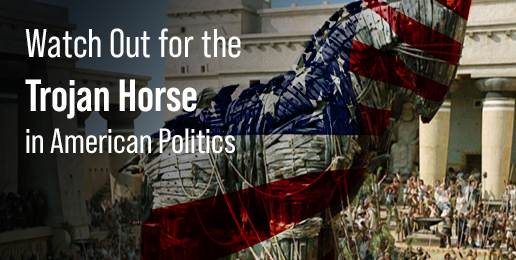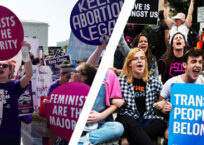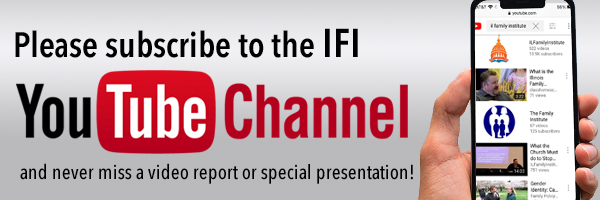
America has scrubbed almost every hint of religion from the public square. Prayer is gone from public schools. The Ten Commandments are taken out of courthouses.
But one display of religion has been spared the axe: legislative prayer.
Have you ever watched a clip of a chaplain praying at the start of a session of Congress, and wondered how in the world this got past security?
Believe it or not, the U.S. Supreme Court has ruled twice that prayers are allowed at the start of legislative sessions, even prayers that specifically address “Jesus Christ” (instead of just generically “God”). The most recent case, Town of Greece v. Galloway, was decided in 2014.
The town of Greece, New York, had been regularly inviting local pastors to open the town board’s meetings with prayer. However, because some of these prayers addressed Jesus Christ or referenced the Christian gospel, some citizens sued the town for violating the First Amendment’s prohibition on “establishments of religion.” Yet the U.S. Supreme Court ruled in a 5–4 decision that the town could continue these prayers.
On the surface, this looks like a victory, doesn’t it? You can imagine Christian-friendly headlines announcing, “Prayer Wins in Front of Supreme Court!” or “SCOTUS Spares Last Remnant of Christianity in Government!” Of course, we should all be glad that we’re still allowed to pray publicly in legislative meetings.
However, the rationale for a court’s ruling is sometimes more important than the ruling itself. Always read the fine print to discover the reason why a court ruled how it did. On closer examination, this court case did not actually defend the true nature of prayer, but really a gutted version of it.
Thus, this case gives us a lesson in critically evaluating what’s happening in the political and legal world around us—Christians need to be wary of Trojan horses.
Justice Anthony Kennedy, who wrote the Court’s opinion, did not defend prayer according to what it actually is.
First, Kennedy observed that legislative prayer enjoys substantial historical support. For example, only days after approving the language of the First Amendment, the First Congress appointed chaplains who prayed during legislative sessions. And we’ve had a basically uninterrupted tradition of legislative prayer since then.
Therefore, it can’t be that contradictory to the First Amendment! Even if the Ten Commandments have to go, at least prayer can stay.
Kennedy’s attention to tradition was admirable, but this was not actually a robust defense of prayer. It was more of a bonus consideration that “past generations thought legislative prayer was constitutional.”
It did not address the real reason why both past and current generations wish to pray—to address the Lord—and establish why that is constitutional. Under Kennedy’s argument, the publicly acceptable justification for prayer was that it is “part of our tradition,” perhaps like fireworks on the Fourth of July.
This stripped prayer of its potent significance. When you are praying in front of a legislative session, it’s not so important that you are “talking to God,” but rather that you are “being traditional.”
To be fair, Kennedy also addressed reasons why people would choose to pray even today. The problem is, he identified the wrong reasons. As he put it,
“[L]egislative prayer lends gravity to public business, reminds lawmakers to transcend petty differences in pursuit of a higher purpose, and expresses a common aspiration to a just and peaceful society” (Town of Greece, slip op. at 6).
But then why were appeals to Jesus Christ or quotations from Bible verses okay, in his opinion? Because “[t]hese religious themes provide particular means to universal ends” (slip op. at 15).
As he saw it, even a prayer containing Christian details could still solemnize the occasion for everyone in the room. That would be an appropriate “secular” goal, whether or not you’re a Christian. Essentially then, Christian prayers were acceptable not because of their Christian truth, but because they established secular mood lighting.
Kennedy’s defense undercut the nature of what he was trying to defend. Essentially, references to Jesus Christ were acceptable because people could simply ignore Jesus and set their minds to some generic noble purpose that He reminded them of.
Kennedy seemed to justify prayer on every conceivable level except for the real reason that anyone genuinely engages in it—to communicate with God. Accordingly, Kennedy examined (in painstaking detail) the effect that prayer had on legislators and audience members as it set the mood for the day’s proceedings.
But if prayer is only commendable or condemnable because of its effect on human bystanders, then the real reason for prayer is not publicly legitimate. It might be acceptable to pray because “we want to solemnize the day’s proceedings,” but not because “we actually want to talk to God before we begin passing laws.”
Christians should not be cheering to hear this kind of argument. This is not just a roundabout way of getting to the Christian conclusion—this is an incredible insult to Christianity. Invoking the life-bringing death, burial and resurrection of Jesus Christ should never be merely a roundabout way of helping congressmen concentrate.
When the only publicly legitimate reasons for a religious act are secular justifications, then the religious act has lost its power. By refusing to publicly legitimate the real reason for prayer, Kennedy demeaned prayer while trying to defend it.
Why does this matter? What’s with all the nit-picking about Kennedy’s reasoning? Can’t we simply rejoice that we still get to pray in Congress?
Yes we can rejoice in that. But we should be sobered by the rationale, because the justifications that one proposes for his position have an uncanny way of retrospectively defining his position.
Town of Greece may have been a win for the “make legislative sessions solemn” party, but it was not a win for the “let us talk to Jesus Christ in Congress” party. If prayer’s opponents could come up with some reason why it does not solemnize the occasion—maybe because the message of the cross is indisputably offensive (Galatians 5:11)—then prayer itself hangs in the balance again.
So this should be a lesson for all of us as we track today’s political and judicial battles for righteousness.
Always read the fine print. Even as you rejoice that the cause of Christ may prevail in yet another court ruling or bill signed into law, make sure that the cause of Christ wasn’t subtly redefined along the way.
If we’re not watchful, anti-Christian values will get Trojan-horsed right into the midst of our victories.























